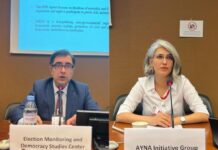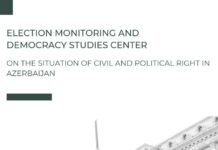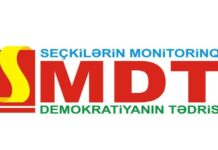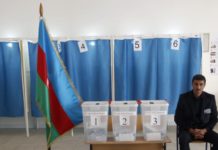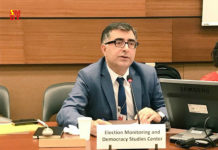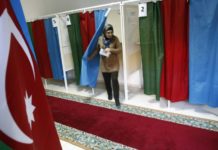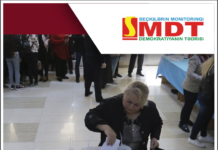Independent civil society organizations discussed their expectations from the session to be held in Geneva this November
On July 7, the Election Monitoring and Democracy Studies Center organized a Public Forum to inform the local and international community, including diplomatic corps operating in the country, about the reports of Azerbaijani civil society organizations to the 44th Universal Periodic Review (UPR) process of the UN Human Rights Council.
Civil society representatives, human rights defenders and representatives of foreign embassies participated in the event. The representatives of the civil society explained the objectives of the recommendations put forward in the reports submitted to the UPR.
EMDS Chairperson Anar Mammadli gave information about the recommendations put forward within the framework of the last UPR held in 2018 on the situation of human rights in Azerbaijan and their essence. According to him, the representatives of 105 countries represented at the UN expressed opinions on more than 200 issues during the discussions held in 2018 and questioned the work done in the country regarding the human rights situation in Azerbaijan. “Unfortunately, there have been no reforms in the field of human rights over the past years in connection with more than 150 obligations assumed by the Azerbaijani authorities, but the crisis in the protection of human rights in the country has deepened.”
Mammadli noted that the Azerbaijani authorities will submit a national report on the state of human rights in the country to the UN Human Rights Council by November of this year. “As an alternative to this report, during the last 6 months of this year, a large number of local civil society activists held discussions, prepared reports in accordance with the UPR regulations in various fields, and submitted them to the UN.” According to him, the reports prepared by the civil society institutions and the recommendations put forward by them should be carefully reviewed by the diplomatic corps of the democratic countries represented in the UN, and these documents should be evaluated in parallel with the national report on Azerbaijan.
Other civil society representatives participating in the forum talked about freedom of expression, free assembly, right to political participation, freedom of association, gender equality, domestic violence, persecution of LGBT+ individuals, rule of law, social equality, labor rights and fight against corruption presented to the UN regarding the recommendations related to the reports.
Emin Abbasov, the founder of the Independent Lawyers Network, noted that starting from 2013, the elimination of reactionary changes to the national legislation related to the freedom of association of citizens, including the activities of NGOs, as well as reforms in the judicial system should be considered in the next UPR session.
Vafa Rustam, the representative of Ayna Initiative group, spoke about the increase in the cases of gender based domestic violence against women in the last 5 years and said that the efforts of the state to fulfill the obligations undertaken in the fight against these cases are weak. In her opinion, it is important to increase the number of shelters and legal protection measures for the protection of victims of sexual violence.
Zohrab Ismayil, the head of the Center for Assistance to Free Economy, stressed that the state has not fulfilled its obligations in the fight against corruption within the framework of UPR 5 years ago. According to him, during the next session, the Azerbaijani authorities should work towards the adoption of the anti-corruption Action Plan, the disclosure of the income declaration of officials, and the principles of transparency and disclosure in management.
The representative of the Queerdian, Samad Rahimli, considered it necessary for the state to carry out reforms against hate speech and smear campaigns against LGBTQ individuals, as well as hate crimes, and to improve the national legislation for the protection of the rights of persons belonging to these groups.
The representative of the Institute of Civil Rights, Ulker Hamidli, presented their recommendations on increasing the minimum living standards in the country, improving the rules for calculating wages and social benefits, and considered it necessary for the state to adopt new legal normative acts in this field.








